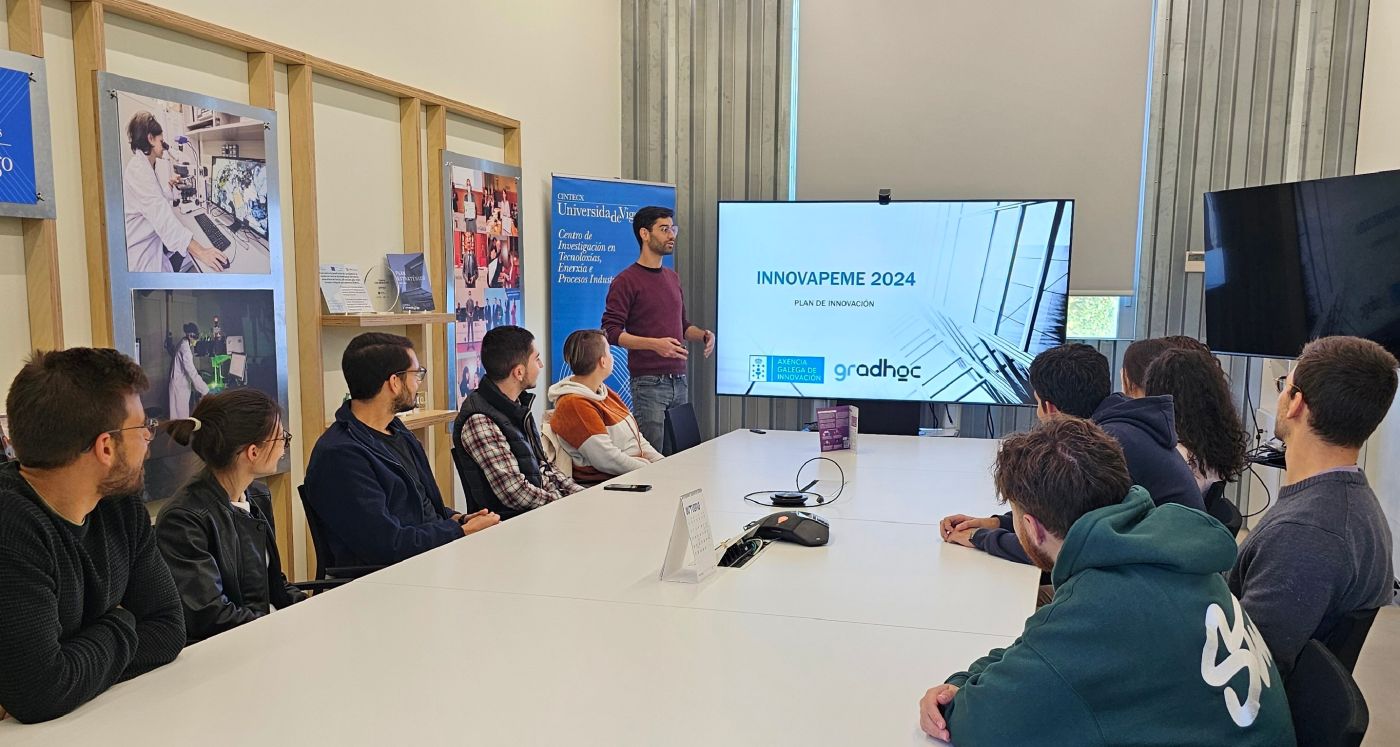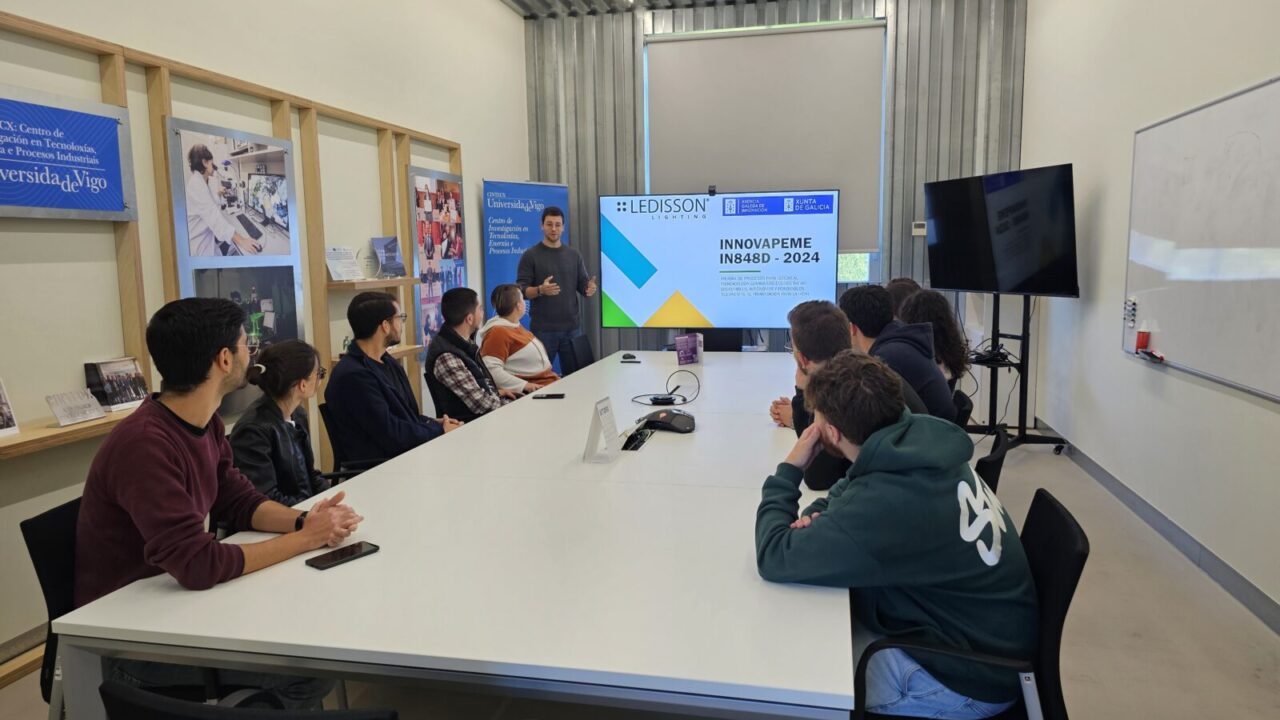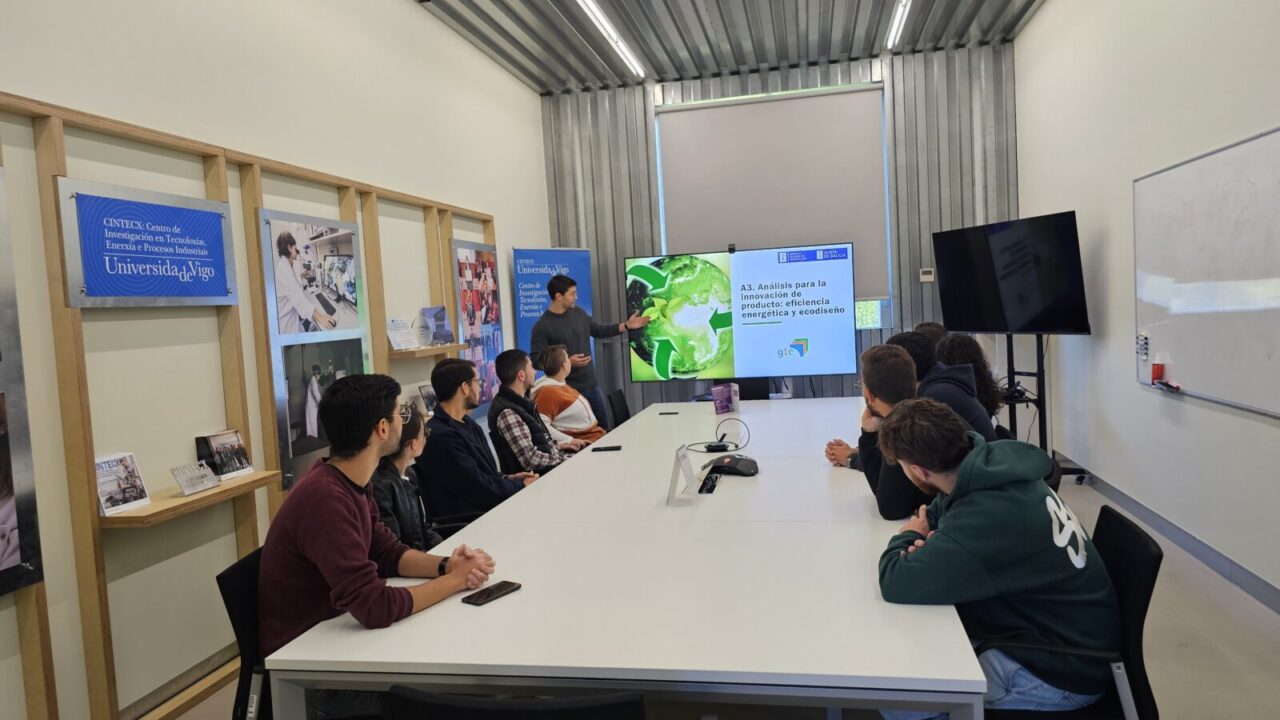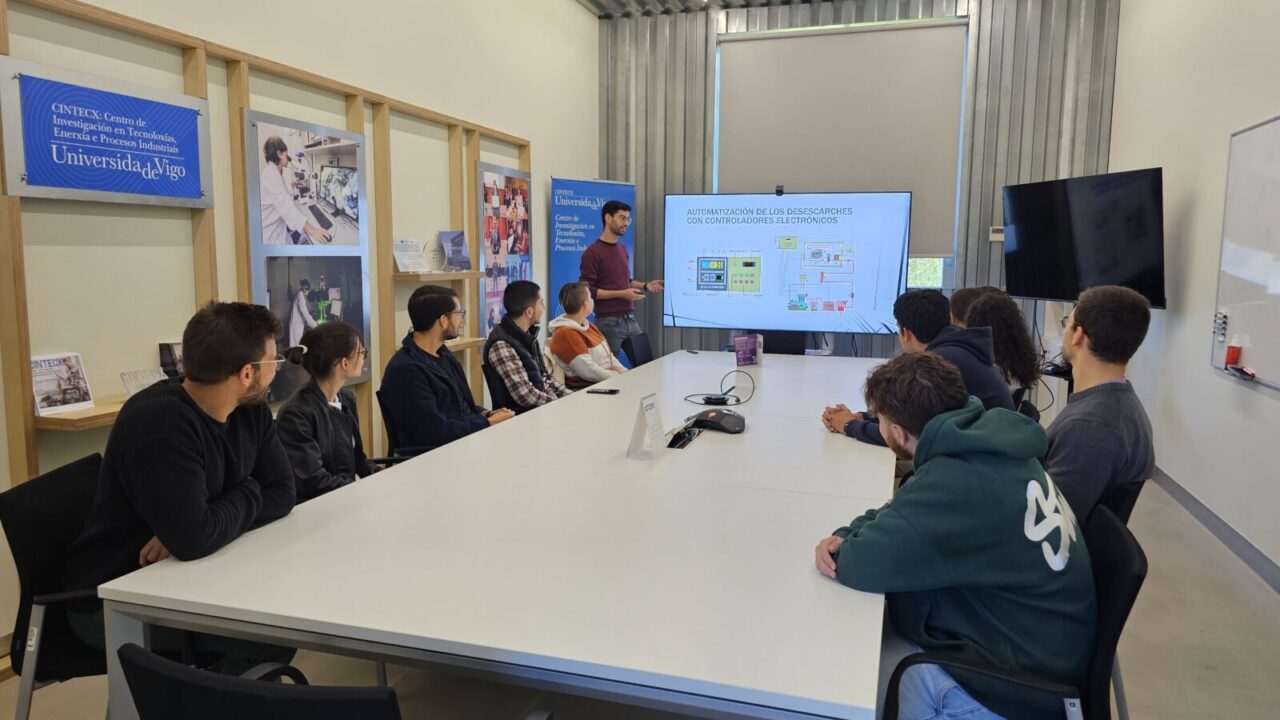Once again, the Research Center for Technologies, Energy and Industrial Processes (CINTECX) hosted the dissemination event for the InnovaPeme plans, organized by the Energy Technology Group (GTE) of the University of Vigo. The companies Gradhoc Smart S.L. and Ledisson Lighting S.L. had the opportunity to present the results of their innovation plans developed throughout 2024, as part of the InnovaPeme 2024 program promoted by the Galician Innovation Agency (GAIN).
The event aimed to share the progress made in two strategic initiatives focused on energy efficiency, sustainability, and industrial digitalization. Both projects align with the priorities of Galicia’s Smart Specialization Strategy (RIS3) and stand out as examples of successful knowledge transfer from the academic sphere to the Galician industrial sector.
Innovation in industrial refrigeration with Gradhoc Smart
During the first part of the session, Gradhoc Smart presented the results of its plan aimed at optimizing energy performance in refrigeration and freezing chambers. The project enabled the development of advanced tools for thermal zoning and energy load analysis, improving the understanding of thermal behavior in industrial environments.
Among the most notable achievements is the design of a predictive defrosting system that activates only when real conditions require it, significantly reducing energy consumption without compromising safety or performance. Additionally, the project explored the use of thermal digital twins and predictive control algorithms, opening new possibilities for autonomous management based on real-time data.
Ledisson Lighting’s commitment to sustainable lighting
In the second part of the event, Ledisson Lighting presented its innovation plan focused on developing more efficient, sustainable, and competitive luminaires. Thanks to collaboration with the GTE, the optical design of the products was optimized, and the impact of technical parameters on energy consumption was thoroughly analyzed.
The project also incorporated eco-design criteria and innovative materials that improve recyclability and reduce environmental impact throughout the product’s life cycle. One of the most significant advances was the integration of renewable energy sources and enabling technologies (ETs), such as artificial intelligence and predictive data analysis, to maximize operational efficiency and anticipate energy management strategies adapted to environmental conditions.
University–industry collaboration for a sustainable future
The event concluded with a roundtable discussion on key trends and future challenges in energy efficiency, industrial sustainability, and digitalization. The vital role of university–industry collaboration was highlighted as a driving force for technological transformation in strategic sectors.
Thanks to the support of the Xunta de Galicia through GAIN’s funding programs, both projects strengthen the competitiveness of the Galician industrial fabric and actively contribute to the transition toward a more innovative, sustainable, and decarbonized industrial model aligned with European objectives.
.




